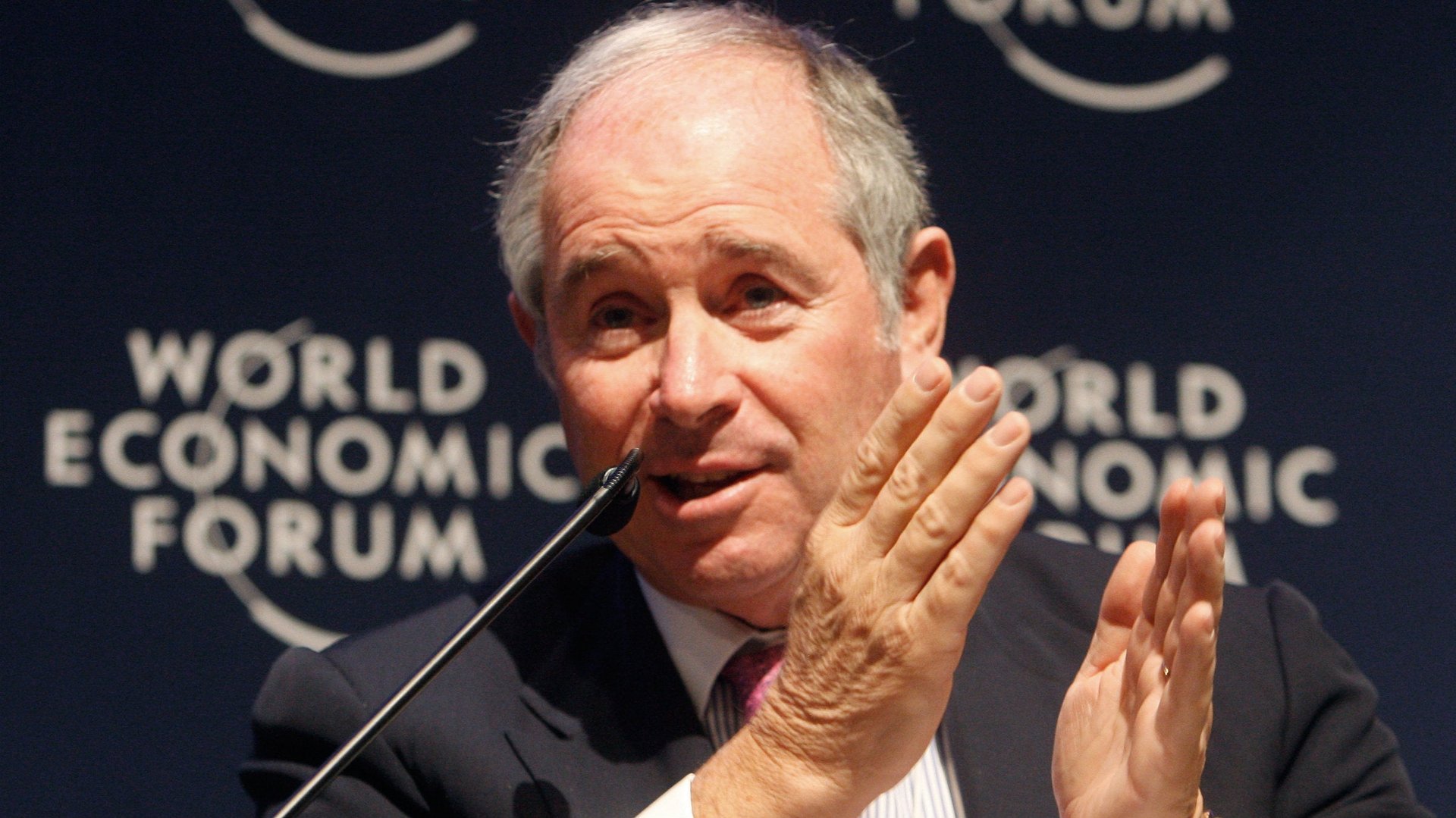A Rhodes for the 21st century: a Q&A on Stephen Schwarzman’s Chinese dream
The massive scholarship program to bring students from around the world to Beijing’s Tsinghua University, unveiled at the weekend by Blackstone Group co-founder Stephen Schwarzman, is being billed as the 21st-century version of the Rhodes Scholarship, endowed by the 19th century mining magnate Cecil Rhodes. Both programs are the product of controversial and immensely wealthy men who are concerned about the future balance of global power, and the future leaders who will wield it.


The massive scholarship program to bring students from around the world to Beijing’s Tsinghua University, unveiled at the weekend by Blackstone Group co-founder Stephen Schwarzman, is being billed as the 21st-century version of the Rhodes Scholarship, endowed by the 19th century mining magnate Cecil Rhodes. Both programs are the product of controversial and immensely wealthy men who are concerned about the future balance of global power, and the future leaders who will wield it.
Rhodes, an Englishman who spent most of his life abroad, wanted to create a forum where future leaders from the developing world (which then included the United States) could absorb the knowledge and values of the British empire. Schwarzman—who was turned down for a Rhodes scholarship when he was in college, and went on to co-found one of the world’s largest private equity and asset management firms—has flipped the script slightly by bringing ambitious 20-somethings from around the world to China, which has regained its status as a major power and is on its way toward becoming the world’s biggest economy.
To examine these parallels, and to discuss what the Schwarzman scholarship tells us about the shifting global balance of power, Quartz spoke with Professor Don Markwell, executive director of the Menzies Research Centre and former Warden of Rhodes House, Oxford, responsible for running the Rhodes Scholarships around the world.
What impact has the Rhodes Scholarship programme had on the world?
The effect of Rhodes has been profound. It has helped to shape people who have been leaders in many fields, including opinion leaders. It has contributed significantly to improving understanding between countries. I think it’s no surprise that, for example, in discussion of American foreign policy there is a significant Rhodes influence. It has had a profoundly positive impact for many decades and will continue to have such an impact.
Will the Schwarzman Scholarship program have a similar impact?
“I hope that they will have a comparably positive impact. The true core objectives are, one, to promote international understanding and, two, to develop public-spirited behaviour. I think it’s a very good thing to have generous scholarship programs of this kind and open up the world to people who are likely to be leaders, including leaders of opinion. Clearly a great deal of thought has gone into preparing [the Schwarzman Scholarships] to be able to do their bit. I hope that they succeed.
Some critics have said that scholarship programmes focus exclusively on an elite. Mr Schwarzman said that Americans “know next to nothing about China”. Will this programme help them to learn more?
I think in any community there are people who help to lead and shape opinion. They may be political leaders, they may be business leaders, academia, even dare I say it leaders in the media. So if you help to broaden the horizons, deepen the international and cross-cultural understanding of people who are going to be leaders in those fields, including people who will help to shape the opinions, then that seems to be to be not just about an elite.
The Schwarzman Scholarship announced that funding would not be made available to students from African nations. Students from every other continent, except Antarctica, are eligible. What is your opinion of that?
I got the impression that the Schwarzman people were backtracking on that. I don’t know why the Schwarzman was originally designed not including Africa. I very much hope they find that as an error and rectify it.
Do you think the Schwarzman Scholarship program has done enough to engage Chinese students? Can it be successful even when Chinese students are not sent abroad to study?
I’m all in favour of giving Chinese students the opportunity to study around the world. One of the attributes of the Schwarzman is that it will bring Chinese students in very close contact with other overseas Schwarzman scholars. Those Chinese students, while staying in their own country, will nevertheless have a very deep engagement with comparably talented and energetic young people from the US and from many other countries.
What do you think the Schwarzman Scholarship program says about the decline of the American “empire”?
I don’t think it’s about America being in decline. It is in fact an act of enormous generosity driven by Americans. It does on the other hand represent an acknowledgement that the rise of China is one of the most important facts of the 21st century. And that the US and other countries around the world do need to engage with an emerging China.